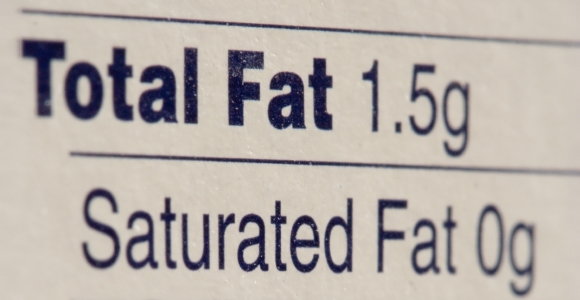Years ago, the fad was to eat a low in fat diet in order to lose weight. And many people are still under the impression that eating as little fat as possible is the key to shedding the L.B.s, so they buy as many fat-free products as they can. Fat contains more calories than protein and carbohydrates, which is why high-fat foods contain a greater amount of calories. There are nine calories in a gram of fat compared to only four calories in both a gram of protein and a gram carbohydrate. Today, you can find a fat-free version of most foods--even foods you would think must contain fat, like cookies, chips, and salad dressing.
But does fat-free food really make you lose weight?
A POOR SUBSTITUTE
Have you ever read the ingredient list on the back of fat free foods? In most cases, the fat is replaced by sodium, sugar, or carbohydrates. For example, the first four ingredients in Kraft's Fat Free Ranch Dressing are water, corn syrup, vinegar, and high fructose corn syrup. In order for the fat-free food to maintain its taste, the fat has to be replaced with something else that will give it a similar flavor and texture. In this case, the fat was replaced with corn syrup and high fructose corn syrup, which is sugar. Pringles fat-free chips contain olestra, which is a synthesized fat substitute that can't be metabolized by the enzymes and bacteria in the stomach, so it can't be absorbed or digested. Because of this, all products containing olestra must put a warning on their label that says that olestra might cause abdominal cramping and loose stools.
DAIRY PRODUCTS
Fat-free dairy products are made when all of the milk fat is removed from the whole milk. They don't have any added ingredients, and are actually better for you than full-fat or low-fat dairy products as they contain fewer calories and fat. Although they may not taste as good, fat-free dairy products may actually help you lose weight.
TASTE MORE, EAT LESS
Our bodies actually need a certain amount of fat in order to feel satisfied. When you eat foods that don't contain fat, your body may not feel satisfied, which could cause you to eat more. While it's best to avoid processed foods altogether, if you're going to eat them at all it's better to choose the full-fat versions and limit the amount that you eat. By doing this, you will avoid eating the added sugars and chemicals that come in fat-free foods.
IT'S THE CALORIES
In order to prevent weight gain or lose weight, it's the total calories that you consume, and not the fat that matters. Higher fat foods will contain more calories, but if you want to lose weight, you should consume a diet with plenty of fruits and vegetables, lean meats/meat alternatives, fat-free/low-fat dairy products, and whole grains. Most of these foods are naturally lower in fat. However, you will need to eat some fat too. It's best to eat healthy fats such as olive oil, coconut oil, peanut butter, and avocado. It's important to watch your portion size when eating healthy fats because in most cases, a serving of fat is only one teaspoon. If your portions are too large, it may cause you to gain weight.
Kelly Forness is a Dietetic Technician, Registered (DTR) and a member or the American Dietetic Association. She recently obtained her Certificate of Training in Childhood and Adolescent Weight Management. She has experience working in long term care facilities and is currently working at a daycare. Kelly has always been interested in nutrition and fitness her whole life. Kelly is a vegetarian, and tries to eat mostly whole foods. In her free time, she likes spending time with her friends and family, working out, and playing with her 2 cats Chloe and Daisy and dog Charlotte. Kelly can be reached via email at [email protected].



